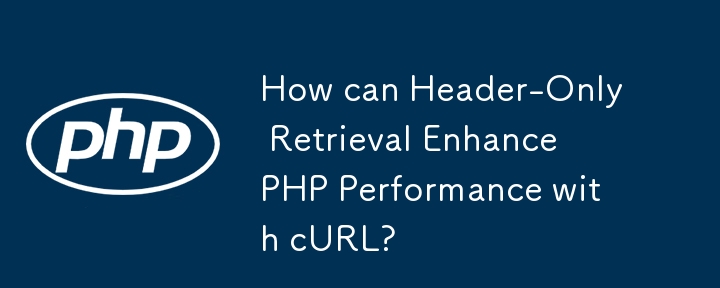

When utilizing cURL in PHP, a key consideration is optimizing the retrieval process to minimize resource consumption. A common technique involves retrieving only the header information of a remote page, eliminating the need to fetch the entire page content.
By opting for header-only retrieval, the server performs a less intensive operation, as it only needs to send the header information rather than the full page content. This results in a reduction in processing power consumption on both the server and the client side.
Similarly, the bandwidth utilized during the retrieval process is significantly reduced, as only the header data is transmitted. This translates into faster page loading times, especially for web applications and automated processes requiring frequent content updates.
In the provided code snippet, there's an error in the logic for retrieving the last modified header:
$this -> last_change = curl_getinfo($header);
To access header-related information, use the cURL handle ($curl) instead of the header data ($header). The correct syntax should be:
$this -> last_change = curl_getinfo($curl, CURLINFO_LASTMOD_GMT);
A more robust approach involves creating a class named URIInfo that handles the retrieval of various information from a URI:
class URIInfo
{
public $info;
public $header;
private $url;
public function __construct($url) { /* ... */ }
public function getFiletime() { return $this->info['filetime']; }
// Other functions can be added to retrieve specific information.
}This class offers a structured and maintainable way to retrieve header details, including the file modification timestamp, through the getFiletime() method.
By leveraging header-only retrieval and implementing efficient methods to access header-related data, PHP developers can optimize the performance of their web applications, reducing both processing power consumption and bandwidth usage.
The above is the detailed content of How can Header-Only Retrieval Enhance PHP Performance with cURL?. For more information, please follow other related articles on the PHP Chinese website!




